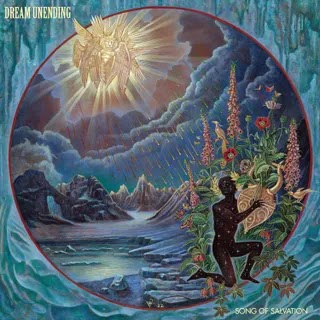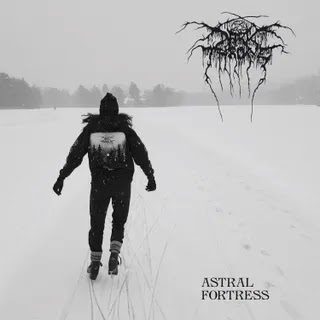The British metal legends return with their dark and patient 17th album. While their influence looms large in heavy music, no other band sounds quite like this.
Iron Maiden’s late-career albums have been stubbornly anti-nostalgia. While plenty of their peers eventually returned to the sounds that made them famous—Metallica on Hardwired…to Self-Destruct, Black Sabbath on 13, Judas Priest on Firepower—the British metal titans have walked their own road, to the frustration of casual fans who just want to relive the high-octane gallop of “Run to the Hills” and “The Trooper.” When they toured 2006’s grim, downtempo A Matter of Life and Death and played the 70-plus minute album in its entirety, it was seen as provocation. But this dedication showed that Maiden take their new work—more concerned with slow-building atmosphere and progressive song structures than the live-wire energy of their biggest albums—just as seriously as the classics. The band’s 17th full-length, Senjutsu, continues this trend. It’s another thoughtful, knotty album that has no interest in rehashing the 1980s.
Like every 21st century Maiden album, Senjutsu shares DNA with the refined melodies and epic scale of their 2000 reset, Brave New World. That album saw lead singer Bruce Dickinson and guitarist Adrian Smith rejoin the band following a mid-’90s exile that coincided with some of Maiden’s weakest records. Dickinson and Smith’s return yielded a strong comeback, and each successive release has nodded to its influence while expanding into new territory. Senjutsu is thrilling both when it’s refining the Brave New World template and expanding on it. “Lost in a Lost World” typifies the former mode, bookending its anthemic middle section with a pair of extended acoustic reveries. Conversely, lead single “The Writing on the Wall” feels new for them, borrowing from country and blues in a way this progged-out version of Maiden never has before.
The laid-back choogle of “The Writing on the Wall” is a rare moment of lightness on what is otherwise the darkest, heaviest Maiden record since A Matter of Life and Death. Beginning with the martial drum pattern and thunderous riffs of the title track, Senjutsu is by turns brooding, elegiac, and bellicose. The album’s darkness echoes some of the real-life circumstances of its creation. Senjutsu is the first Maiden album to be recorded since Dickinson was diagnosed with throat cancer, and during the sessions, he tore his Achilles tendon and learned he needed a hip replacement. Through the pain, he gritted out an impressive vocal performance. Age and illness have cut his soaring tenor down to something more earthbound, but it feels appropriate for the gloomier material.
Senjutsu is also one of Maiden’s most patient albums. That quality is most palpable on the trio of marathon-length songs that end the album, all written by bassist and bandleader Steve Harris. Taken as a triptych, these songs shine a light on both the strengths and shortcomings of reunion-era Maiden: “Death of the Celts” is the album’s only real failure, a plodding, didactic historical epic that feels like a retread of 1998’s “The Clansman.” “The Parchment” gets off to a slow start before letting the three-guitar attack of Adrian Smith, Dave Murray, and Janick Gers trade solos for five minutes, cranking the song up to a frenzied pitch the rest of the album rarely reaches. “Hell on Earth” is the real showstopper, gracefully darting between singalong hooks, histrionic guitar melodies, and weepy slow parts. All three songs share a basic template, but the different outcomes prove that even a rock-solid formula is only as good as its ingredients.
It feels impossible, but the lineup of Iron Maiden on Senjutsu is now the longest-tenured version of the band—they have been intact for longer than their entire recorded history leading up to the 1999 reunion. At this stage, they sound both comfortable and ambitious, settling into their familiar chemistry while adding new chapters to a story only they can write. A new Maiden album remains the only place to hear music with this particular synthesis of heaviness, melody, grandiosity, and compositional intricacy. While it’s easy to find a heavy band who can convincingly rip off The Number of the Beast, nobody else in the world sounds quite like this.
















0 comments:
Post a Comment